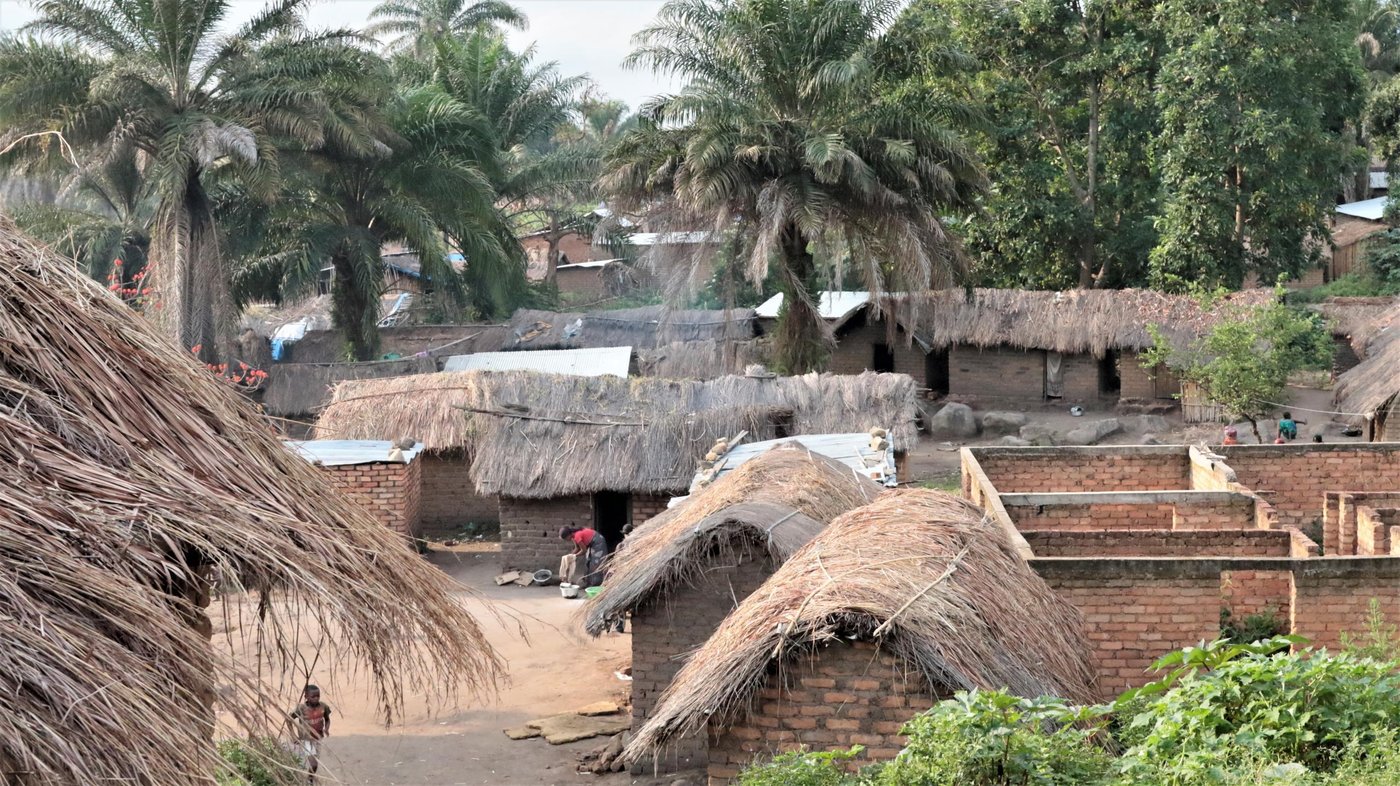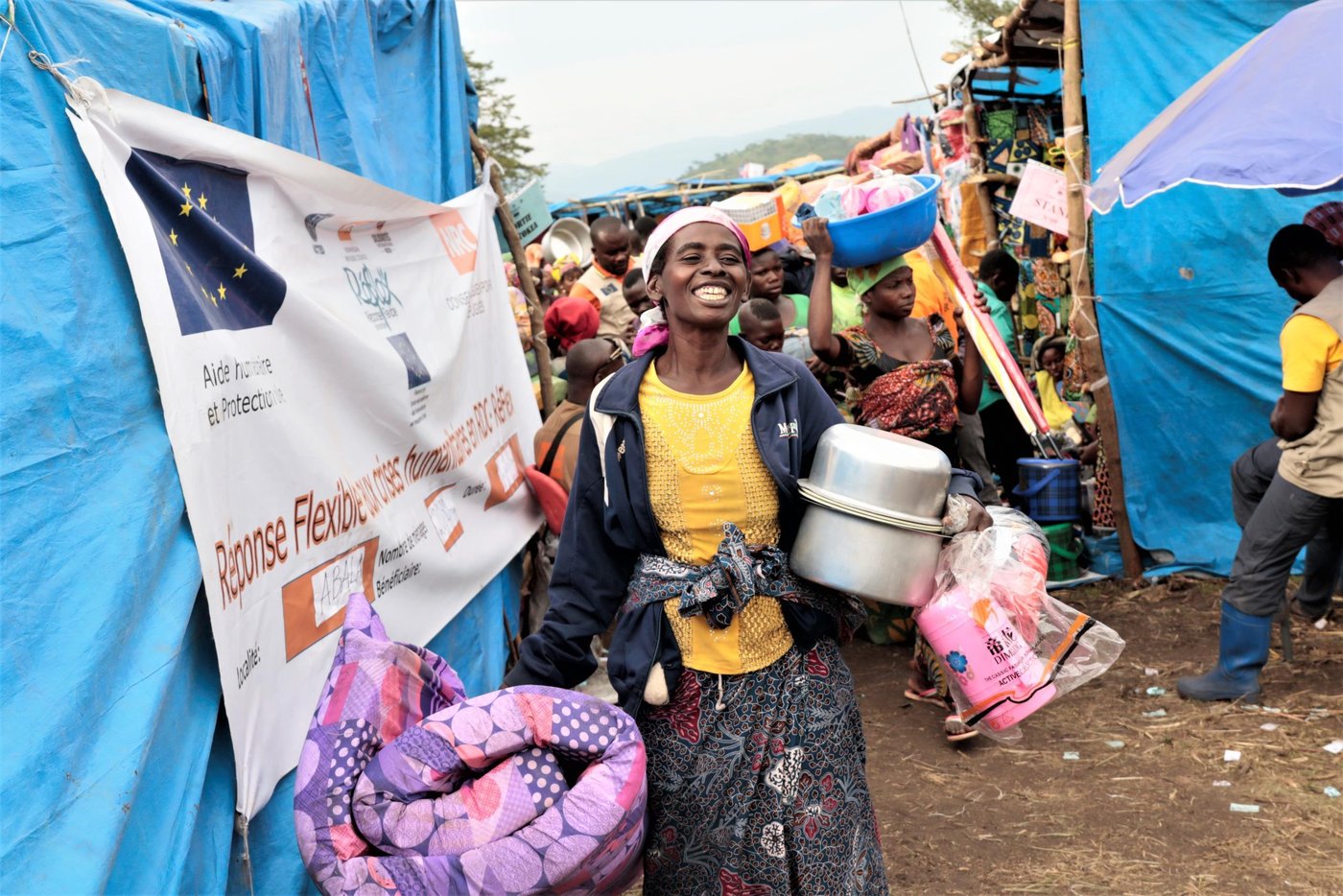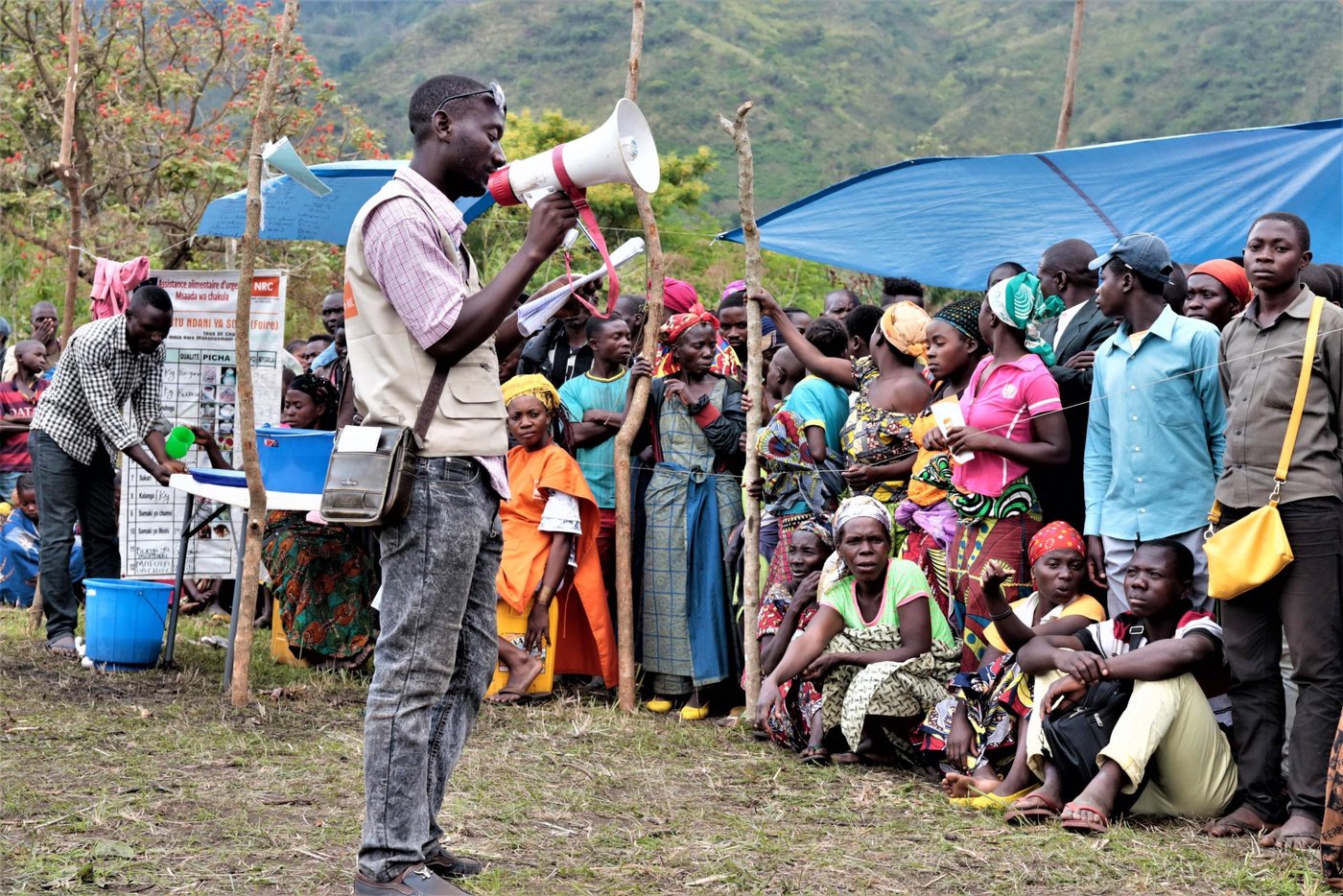The latest wave of attacks
Yvonne’s village in Fizi territory was one of many villages that were burnt to the ground during the recent violence. All possessions that remained were looted by armed men.
“When the clashes broke out, I was harvesting maize in my field near the village. Suddenly, I saw houses burning and people running in all the directions. I quickly scrambled to hide in the bush,” recounts Yvonne.
Yvonne fled to a village 60km away with nothing except two young boys in her care who had previously been orphaned when their parents were slaughtered during a prior attack.
They made the long journey on foot, walking through hills and valleys to avoid the armed men looting and attacking civilians on the main roads. They made this journey through thick forest with nothing to eat.
Seeking safety
After arriving in the village of Mulima, Yvonne and the children in her care found refuge in an unfinished shelter belonging to the village chief. The shelter had no doors or windows. With only the roof over their heads and a thin curtain to protect them from the heavy rains, life in Mulima has not been easy.
![Yvonne is 45 years old and the mother of ten children. The old woman has been living in Mulima village since she fled bloody violence in her village of origin Mikenge in the highlands of Fizi territory in the southeast of the Democratic Republic of the Congo.
In Mulima village, Yvonne shares a small room with the two little orphan boys whose parents were slaughtered during attacks. Before she settled inside, the room was uninhabited and uncompleted from constructing. It has neither door nor windows, but the old woman has no other choice rather than endure elements and cold. Amid cold and elements, Yvonne has struggled to find a dirty small piece of curtain that she uses to serve as a door, but this is not enough to protect herself from either thieves or bandits in Mulima village.
“We are hungry and almost naked; militiamen had looted everything we had, leaving us uprooted in inhumane living conditions,” she says.
To seek safety, the old woman walked about 60 kilometres a distance from her home village—going up and down hills and valleys of Fizi. Sometimes, she had to sleep in the forest with nothing to eat so that she escapes the armed men who were looting and licking civilians on the roads. To reach Mulima village where she has settled since she fled, Yvonne fled village to village, day and night in appalling conditions— with no food and water.
“When the clashes broke out, I was harvesting maize in my field near the village. Suddenly, I saw houses burning to the ground and people running in all the directions. I knew then the situation was bad and I quickly scrambled to hide in the bush,” recounts Yvonne in an emotional tone of voice. “Everywhere I hid; armed men would come to attack and forced us to flee,” she says.
“Since we have arrived here [Mulima], we do not have access to food and our children had stopped going to school. We lack everything, mattresses, blankets; clothes; shoes and pans. We are suffering,” explains Yvonne. To find food, many displaced like Yvonne have developed some poor coping mechanism that however exposes them to additional protection issues like rape or killing as they have to go far away a distance to seek firewood in the bushes. “Every day we get up early morning to cut firewood in the bushes that we sell to the residents so that we buy some food to refresh the mouth”, “For a lucky day, we earn 2,000 Congolese francs, the equivalent of USD 1.2”, declares Yvonne.
November 2019
Photo: Ephrem Chiruza/NRC](/cdn-cgi/image/width=1400,format=auto,fit=crop,height=786/globalassets/images/countries/dr-congo/2019/fleeing-violence-in-fizi/yvone-lulacha_y3a0477.jpg)
“Since we arrived here, we do not have food and our children have stopped going to school. We lack everything: mattresses, blankets, clothes, shoes and pans. We are suffering.”
Even finding food to eat is a struggle. Left with no choice, Yvonne walks long distances to fetch firewood which can be sold. This journey through the bushes puts her, and other women in similar situations, at risk of being attacked.
“Every day we get up early in the morning to cut firewood in the bushes that we sell to the residents so that we can buy some food to eat. On a good day we earn 2,000 Congolese francs (USD 1.2),” says Yvonne.

Emergency aid via a market fair
To respond to this urgent humanitarian situation, we assisted over 13,000 displaced people in Fizi territory in early November 2019. With the support of the European Union, we distributed essential household items to the most vulnerable families, like Yvonne’s, who have been affected by this displacement.

Instead of handing out standard packages to each family, as happens in a traditional distribution, we organised a market fair. We provided e-vouchers so that people could buy household items like mattresses, blankets, pans, clothes, plastic sheets and solar panels. This meant that families, including Yvonne’s, were able to choose the specific items they felt they needed most.
“NRC helped me with USD 75 that I have used to buy one mattress, some clothes and pans. Before I got this assistance, I used to sleep on the soil, but now I can sleep on a mattress. I also bought some rain jackets to protect my two children from rain and cold,” Yvonne told us.

Finding long-term solutions
The frequent waves of violence and the displacement that follows are not uncommon in this area of the DR Congo. This resource-rich area has vast arable lands for farming and pockets of land reported to contain valuable minerals like gold. Efforts to control these resources, coupled with a longstanding violence between communities, have led to the formation of militias that frequently clash. This causes large numbers of people to flee.
According to Relief Web figures, more than 200,000 people have been forced to flee their homes in this area in the past few months. Despite these large numbers, the humanitarian crisis is largely ignored by the media which is heavily focused on the separate Ebola crisis that is simultaneously affecting the area.
“We intervened in this same area a few months ago”, says Bienfait Byamungu, NRC Team Leader of the Rapid Response Mechanism in South Kivu. “As long as peace and stability do not come, people will continue suffering and humanitarian assistance will remain vital for these communities”.
Long-term political solutions must be reached to see this cycle of violence and displacement come to an end. In the meantime, the presence of organisations like NRC is vital to ensure that these people can begin to rebuild their lives.


